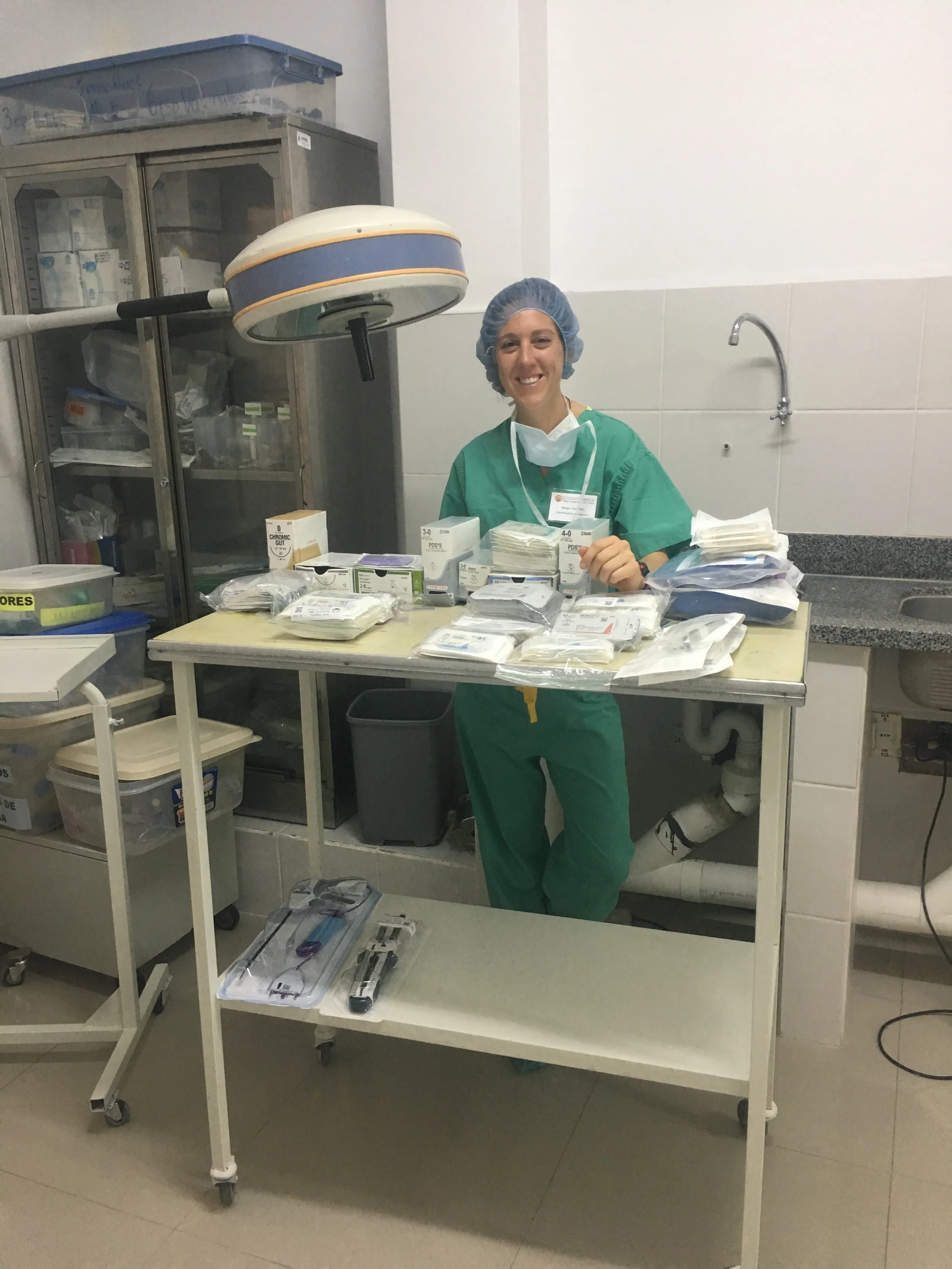Partners in Possibility
Written by Megan Sheridan
Months of work go into procuring donated supplies, logging inventory and packing for each trip.
Going into my first mission trip as an office intern who met Solidarity Bridge merely three months ago, I did not know what to expect. When I first heard of this organization, I was more than half a world away interning in Indonesia, working towards my master’s in public health and teaching basic health principles to children. When I returned to Chicago, my work with Solidarity Bridge began, and introduced me to an array of surgical equipment and instruments. As I worked to inventory and pack the supply donations in our Evanston warehouse, I learned the basics of certain operations and medical terminology. As the trip grew closer, I was invited to join the Oncological Surgery Mission Team, working as their Supply Coordinator. My colleagues guaranteed it would be a “worthwhile” experience. What an understatement!
Today I’m writing from our host hospital, the Cancer Institute of Eastern Bolivia in Santa Cruz. Here I am, currently in scrubs and hairnet, and about to head back into the operating room (the “OR,” as they call it) where I’ve been spending the last few days running to and from the supply room for any extra sutures or equipment the doctors need. In the midst of this work, I’ve had the privilege to observe the development of this partnership with our Bolivian peers, doctors and nurses around the operating table. I am marveling at the beauty of human relationships as new friendships are forged again, half a world away.
From where I stand, I can see one hand throwing a stitch, another retracting a mass, while another adjusts the flow rate of an IV drip. All are gloved and unrecognizable behind their masks, unified as they work together in one cohesive movement to complete a life-changing operation. The owners of these hands are richly diverse.
Since we arrived in Santa Cruz, a mutually respectful relationship has developed organically between Solidarity Bridge missioners and the Cancer Institute physicians and staff. In the OR, senior surgeons and residents in training are all welcome to participate in or observe the procedures. No one skips a beat, and amid the professional focus of these determined healers, it is not uncommon to hear a laugh above the din of surgery. Despite language barriers and the severity of some cases, the room feels at ease with this natural kinship. And the positive outcomes of the procedures so far have brought joy to the patients and physicians as well.
As a principle of partnership building, Solidarity Bridge missioners strive to learn from their Bolivian counterparts and, likewise, the physicians at the Cancer Institute are eager to learn from the missioners. The dedicated efforts of the Cancer Institute, and Puente de Solidaridad leadership and social workers, have made this mutual teaching experience possible. Together, they selected patient cases that serve as learning platforms to build bridges between US surgical experiences, technologies, and techniques and the Bolivian hospital’s talents and resources. While operating, US missioners either narrate as they work or, quite commonly, observe and advise as the local surgeons and anesthesiologists perform procedures. Conversation is abundant as missioners answer questions from the Bolivian professionals about the benefits of using particular techniques or medications, or the advantages of one closure method over another. In return, missioners ask their counterparts how they would complete the same task and often request that the surgeons demonstrate their methods. This safe and respectful environment empowers missioners and the doctors of our host hospital to work in solidarity. They share their talents and expertise, but it is ultimately their shared compassion for the patient’s health that drives this work.
It has been said that “the wise man belongs to all countries, for the home of a great soul is the whole world.” There are many reasons why missioners are called to heal abroad, though it could be argued that it is a personal belief in solidarity, or in the right to equitable health care, that makes mission trips so worthwhile. In acknowledging our universal unity, our connectedness in one human family, we realize there is just as much to gain as there is to give. For these reasons and others, we are able to find a home in Bolivia and in the whole world as we gown up, don gloves, and work as partners in possibility.
Megan Sheridan is an office intern with Solidarity Bridge and joins this mission team as a supplies coordinator. She is a candidate for a master’s in public health at Benedictine University.
This inaugural Oncological Surgery Mission Trip is a part of our General Surgery Program. Throughout the year, our Bolivian partner surgeons perform gallbladder, hernia, and other general surgeries for impoverished patients identified through our Bolivian partner offices in Cochabamba and Santa Cruz. Mission trips give Solidarity Bridge the opportunity to deliver vital equipment and supplies and provide ongoing training. Our goal is to continue to advance skills in these procedures and expand competencies in these and other high-complexity surgeries such as megacolon and various oncological surgeries.


